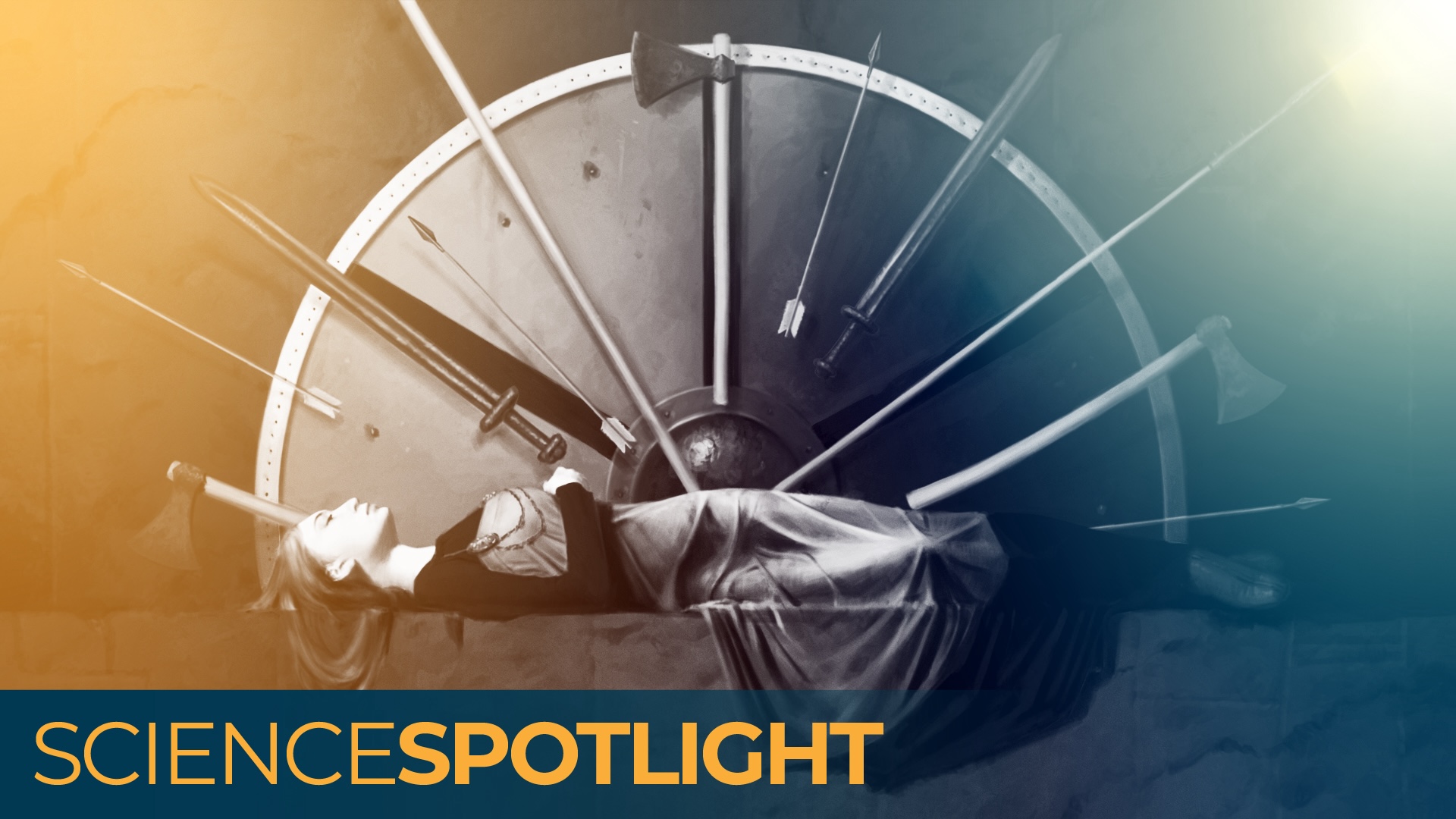Maybe you’ve heard of the TV show The Great British Bake Off. Its contestants take part in baking challenges in hopes of being named champion. But have you heard of The Big Internet Math-Off? At its end, one person is crowned the “world’s most interesting mathematician.” Meet Angela Tabiri: She became its 2024 champion.
To win, this celebrated mathematician from Ghana, Africa, had to find a way to make math fun for everyone.
Sixteen mathematicians were challenged to present something cool about math in a way that grabs people’s interest. In each round, the public voted for who they felt best achieved that.
Tabiri secured the popular vote by doing what she always does: relate math to everyday concepts and problems.
As part of the Math-Off competition, Angela Tabiri explored geometric concepts using everyday objects like bottle caps and lids. She also offers some fun facts about prime numbers.Windows in a house, for instance, can show why angles and geometry are important. Install your window at a slant, she showed, and you risk rain coming in your house. To explain pi, Tabiri went hands-on. Using a string, she measured around and across several common round objects, such as bottle caps and jar lids. Though each circle had a different size, she showed that the ratio between the circumference and diameter stayed the same: pi.
Tabiri also used tricks she learned in college from theater. And in one case, she used dance to explain abstract ideas about her math research.
“Growing up,” she says, she didn’t think math “was something I could do professionally, even though I was good at [it].” Then an algebra teacher saw her promise. He recommended she consider it for a career.
 By middle school, kids — especially girls — often start losing confidence in their ability to do math and to conquer math-related projects (such as robotics and engineering). Angela Tabiri is attempting to restore that self-confidence so that all can comfortably consider entering careers in such fields.fstop123/E+/Getty Images Plus
By middle school, kids — especially girls — often start losing confidence in their ability to do math and to conquer math-related projects (such as robotics and engineering). Angela Tabiri is attempting to restore that self-confidence so that all can comfortably consider entering careers in such fields.fstop123/E+/Getty Images Plus
Tabiri got a master’s degree in math at the African Institute of Mathematical Sciences (AIMS) in Ghana. Then she got a PhD in Europe. When Tabiri returned to Ghana, she joined AIMS. There, she works in quantum algebra. It uses concepts in algebra to understand properties of geometric shapes in space.
Let’s learn about dealing with math anxiety
Through the AIMS Girls in Mathematical Sciences Program, she also nurtures high-school girls to use math.
Since returning to Africa, Tabiri also wanted to use her enthusiasm to inspire more young people in math, especially girls. To pay it forward, she founded a non-profit called Femafricmaths. It highlights African female mathematicians and their career paths on YouTube.
Here, Tabiri shares her experiences, journey, inspiration and advice with Science News Explores. (This interview has been edited for content and readability.)
Did you experience any major setbacks in life? If so, how did you get past that?
I grew up in a community where access to education was sometimes a challenge. It wasn’t common to see a girl choose to do math at university. But no one in my family stopped me from doing that. I’d always just dreamt of studying in the United Kingdom. But it was very expensive. I’ve had scholarships throughout my training, which has helped me.
Then I went to the University of Glasgow [in Scotland] where I was the only female in a PhD class of about 10 — and the only African. I also had to do a lot of learning. But I knew that this was actually it for me. No matter how hard it was, I was going to put in my all.
Do you have a science question? We can help!
Submit your question here, and we might answer it an upcoming issue of Science News Explores
Why is it important to train teens in research communication?
I’ve grown up in very deprived communities with a lot of social biases. My journey has inspired a lot of people. I realized I could make a difference with education. It’s also important that you give people the training they need. My motivation is to see young people believe that they could be anything they aspire to be, if they understand what is being taught and communicate it well. They can break cycles of poverty or social biases. It’s supporting more young people to dream and to do more than I have.
 Angela Tabiri uses relatable things — such as bottle caps, street food and dance — to help sell the importance of math and how it fits into our daily lives.A. Tabiri
Angela Tabiri uses relatable things — such as bottle caps, street food and dance — to help sell the importance of math and how it fits into our daily lives.A. Tabiri
How do you help people see the role of math in their lives?
I find very relatable ways of explaining things, starting from the basics. In the morning, in Ghana, we buy a lot of street food. If someone sells porridge in a certain container and [they] are trying to see how much to sell to make a profit, they have to think of the volume of that container and how much to sell. My approach is to find everyday things about people, but use a very creative way of explaining how it involves math.
How does your theater experience help you talk about math?
In college, we had to go to the theater stage productions every week. There’s a lot of light and sound effects. It made me think outside the box in terms of how to tell a story. Even in math, when you are writing an article, it’s you telling your results in some form of a story. So, theater gave me that dynamic way to understand how to use your voice.
 Angela Tabiri (in red shirt) mentors and supports high school girls in a Girls in Mathematical Sciences Program in Ghana, Africa. Through Science Slam Ghana, girls learn to talk about their research in fun and accessible ways.A. Tabiri
Angela Tabiri (in red shirt) mentors and supports high school girls in a Girls in Mathematical Sciences Program in Ghana, Africa. Through Science Slam Ghana, girls learn to talk about their research in fun and accessible ways.A. Tabiri
How do you inspire students to communicate math to the public?
I remind them of the Breakthrough Prizes [awarded for exceptional science advancements]. I tell them that if they want to get there, they really need to understand the basics, be able to explain those simple concepts and build on them.
We had a science-communication competition for our Girls in Mathematical Sciences Program. I asked them: In a very engaging three-minute video, can you summarize all the concepts that you have learned? I was really blown away by the way they brought a lot of creativity in, how they told their stories and edited their videos. We had prizes — laptops and tablets for them — which gave them a bit of motivation to do it.
What led you to start Femafricmaths? How do you find people to feature?
During my PhD, I realized that a lot of industry experts were coming to recruit mathematicians. I was looking for ways of inspiring the young people across Africa. I didn’t want their geographical background to prevent them from dreaming to be anything they wanted to do. So I started Femafricmaths.
Initially, I only interviewed people whom I met at conferences. But then COVID came. I started reaching out to people whom others have recommended. Now I find people based on research or recommendations from our viewers. Our mission is to highlight the diversity in math careers.













 Bengali (Bangladesh) ·
Bengali (Bangladesh) ·  English (United States) ·
English (United States) ·